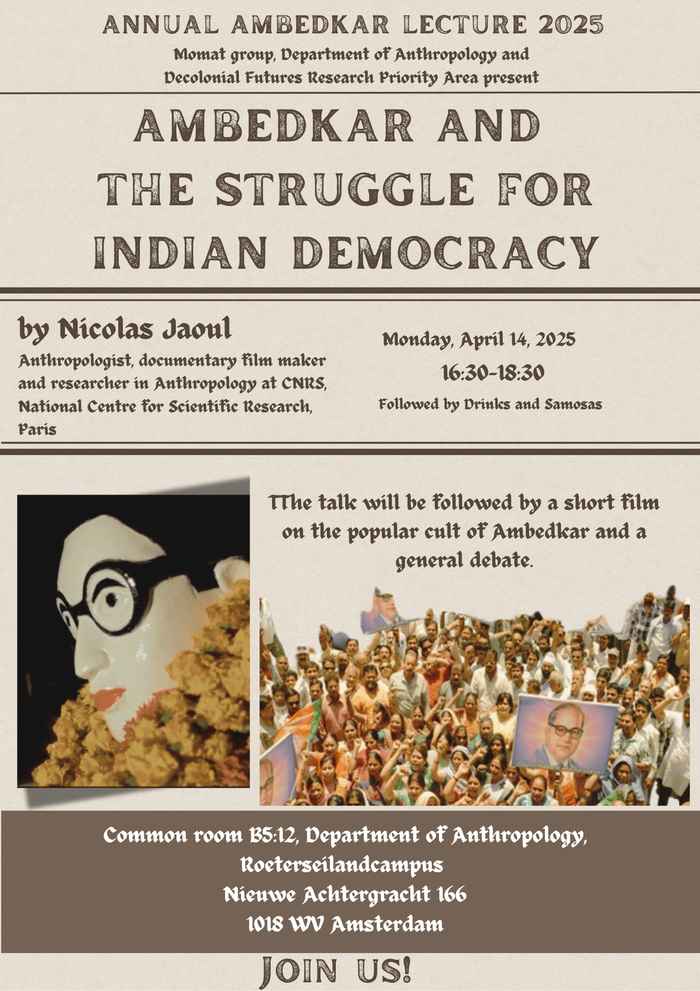Ambedkar and the Struggle for Indian Democracy
- Date
- 14 April 2025
- Time
- 16:30 -18:30
- Location
- Roeterseiland Campus, Faculty of Social and Behavioural Sciences, Building B | B5.12 (Anthropology Common Room)
After his death in 1956, Dr. Bhimrao Ramji Ambedkar, a jurist, social reformer, and the principal architect of the Indian Constitution, was initially marginalized by the establishment.
However, his legacy as a nation-builder and revolutionary was later revived through the efforts of Dalit activists in India. His sharp critique of caste and strong emphasis on building a truly democratic society have now gained prominence both in India and internationally.

While there is a risk of reducing his legacy to symbolic gestures of social inclusion in an unequal society, the ongoing democratic struggles of Indian people demonstrate his enduring political relevance.
The talk will be followed by a short film on the popular following of Ambedkar, Babasahab Amar Rahe, and will conclude with drinks and samosas.
Nicolas Jaoul is an anthropologist at the French National Centre for Scientific Research (CNRS). His PhD dissertation, defended in 2004, explored the emancipation movement of Uttar Pradesh’s Dalits. Since then, he has expanded his ethnographic research on marginalized communities in India, examining Dalit mobilization in different regions, the role of communist peasants in Bihar, and the interactions between Dalits, Hindu nationalism, and Gandhism.
This event is a collaboration between the Decolonial Futures Research Priority Area and the Momat Group (Department of Anthropology).